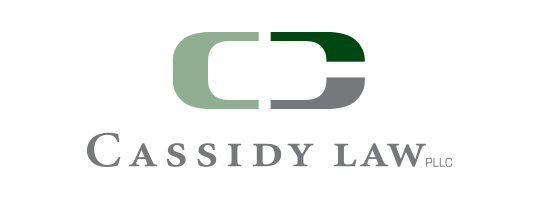
Entering a relationship with a new client, sales consultant, joint venture partner, or any other entity merits thoughtful consideration to protect your business’ value. Likewise, once you enter a relationship, you need to make sure the relationship stays healthy and productive over time. This is especially true when working with governments or doing business internationally because if your business partner violates the law, in many instances those violations become your problem; and pleading ignorance about a client’s or business partner’s misdeeds, may not save you.
As a result, responsible businesses should have methods to really understand who its clients and business partners are and where its products and services are being sold. And, if you do enter a relationship with another entity, you should have some procedures in place to assure they remain the valuable and reputable business you first signed up with.
Your process should be flexible, allowing for more or less due diligence depending on what the business partner will be doing for your organization, what country they will do it in, and what some initial investigation reveals.
Generally, you should find out the basics of the business, its owners, and its capabilities:
- What is its business?
- Who are its owners and leaders? Are they capable? Honest?
- Where does it do business?
- Who are its suppliers? Customers? Joint venture partners? Other partners?
- Does it have the professional support it needs – capable management, capable IT, HR, finance, and legal?
- What are its offices and facilities like? Do they even exist? Are their facilities clean and safe?
- How are its finances?
- What is its reputation in the industry for following the law, for its business capabilities? for integrity?
- Does it have relationships with government officials?
- Does it have the capability and experience to deliver its products or services?
Also, don’t just take your potential business partner’s or client’s word for what they tell you – ask for records, for example:
- Financial statements
- Insurance policies
- Articles of incorporation
- Bylaws
- Resumes of leaders
- Visit their offices or factories
Realistically, failing to check on the entities you work with, not only has the potential to expose you, your leaders, your employees and your business to criminal and civil penalties but, even if you avoid investigations and prosecutions your bank may discover that you are receiving or making payment to a sanctioned country, organization or individual and it may freeze your assets.
Or, as demonstrated in the Theranos case (discussed here and here), failing to do due diligence may impact your return on investment or even worse, you may lose your entire investment.
Finally, failing to know your clients and business partners may not provide you any protection due to a logical, but disturbing legal theory called “willful blindness.” Willful blindness works like this. Say you want to buy a new Porsche 911 Carrera. You search around and learn they sell for about $100,000. You meet a guy at a bar who offers to sell one to you for $15,000 but you have to make the deal the next day, he wants payment in cash, and he will bring his friend, the notary, to sign all the paperwork. If you go for it – chances are you just bought a stolen car and, you will be prosecuted for buying a stolen car under the theory of “willful blindness” since you deliberately ignored facts that demonstrate the transaction was probably illegal.
The same would apply to your business partners – if you ignore or fail to look into obvious indications of wrongdoing or fail to look into possible indicators of wrongdoing, your business may be investigated and prosecuted for being “willfully blind” about your client’s or business partner’s illicit behavior.
In other words, not knowing that there are prohibitions or sanctions against some countries, organizations and persons, does not inoculate you from being prosecuted for violating sanctions laws for doing business with them. Likewise, not being able to demonstrate that you undertook due diligence before working with your sales agent who bribed to get you the contract award, may be one factor the prosecution uses to show that you were “willfully blind” about your sales agent’s bribing ways. This is the case even if your business had no hand in the actual bribing to get the contract.
A business must understand how it delivers its products and services to market, how it gets paid and with whom it does business. Failing to get these types of facts, may expose a legitimate and reputable business to accusations of doing business with sanctioned countries or prohibited entities and individuals; or it may result in investigations or prosecutions from your business partners’ actions. Once you have the facts, it is important to evaluate them to determine if they are a red flag that your client or business partner may be up to no good.
So, as a first step when starting and keeping relationships, get some facts, and then assess those facts to determine what it means for your relationship because as Werner Herzog German, a director, author, and actor pointed out – you need to analyze facts to actually understand what they mean.
“If you’re purely after facts, please buy yourself the phone directory of Manhattan. It has four million times correct facts. But it doesn’t illuminate.” Werner Herzog German

